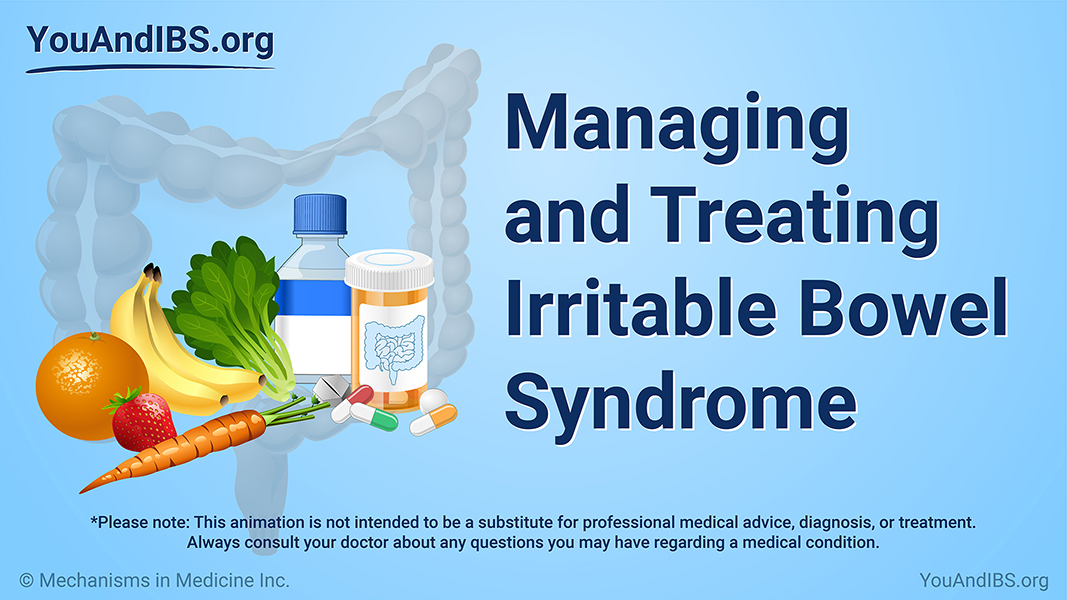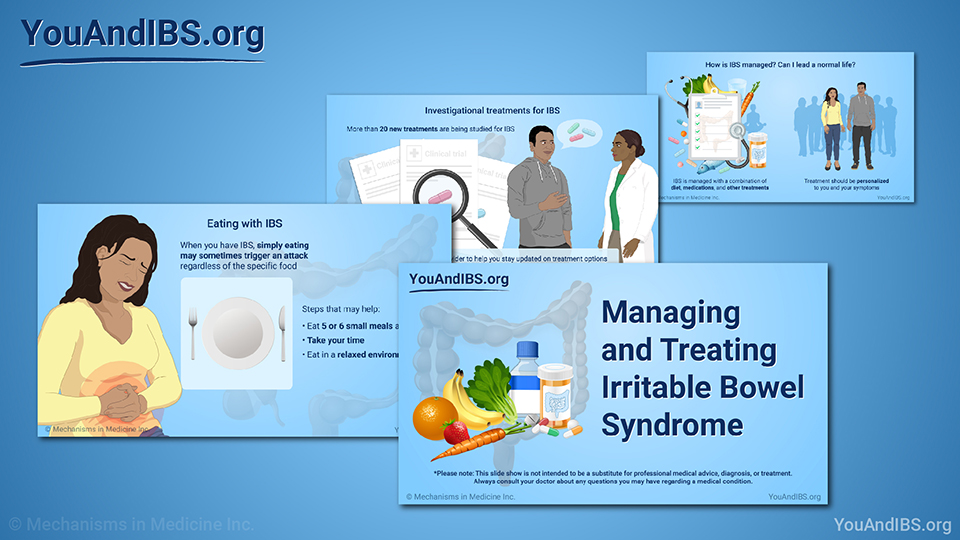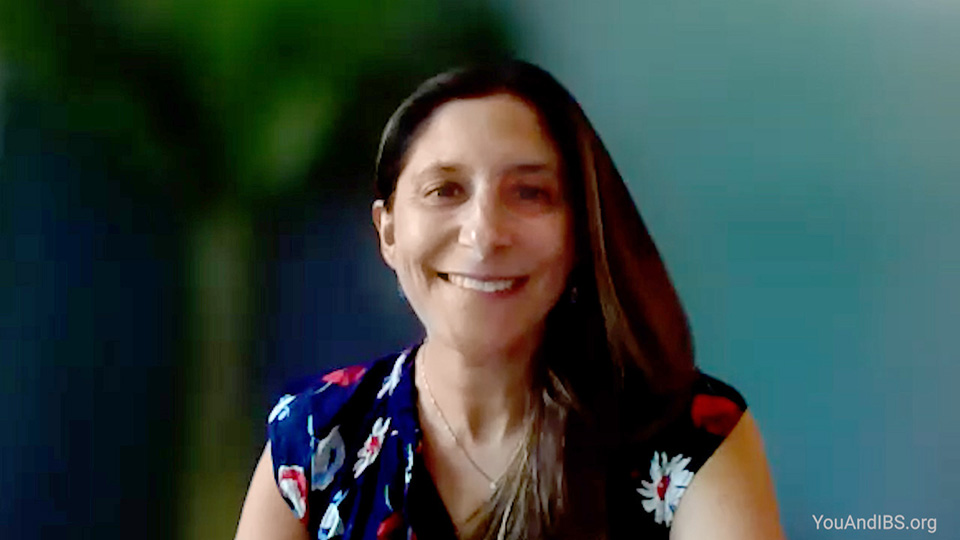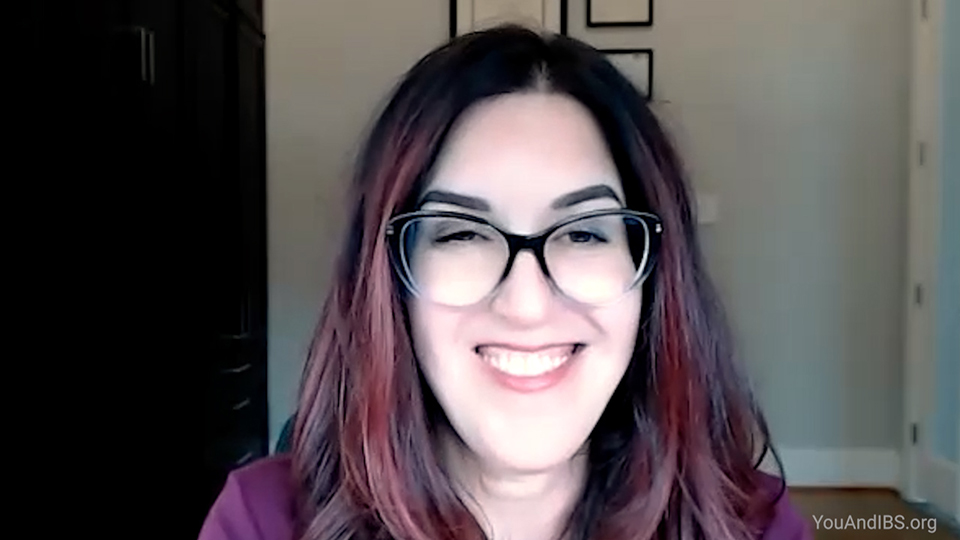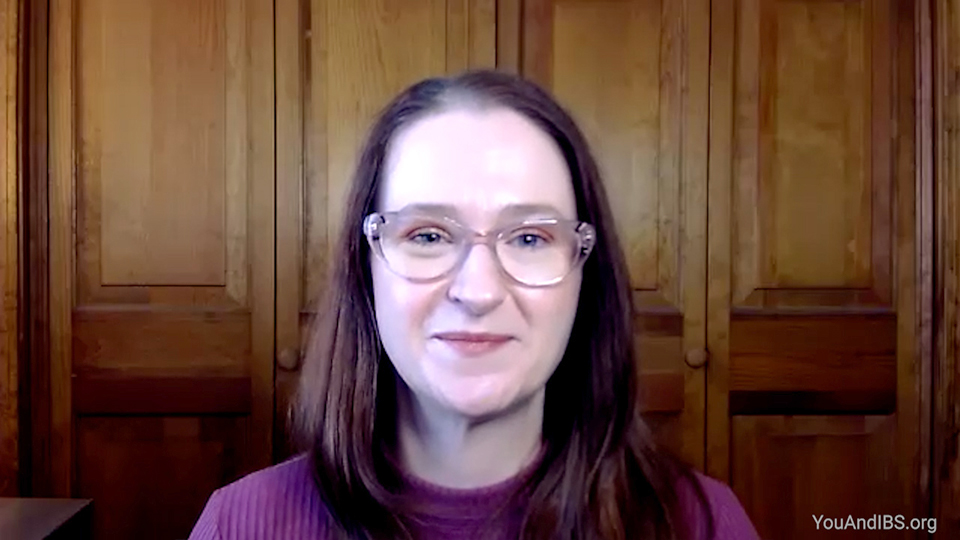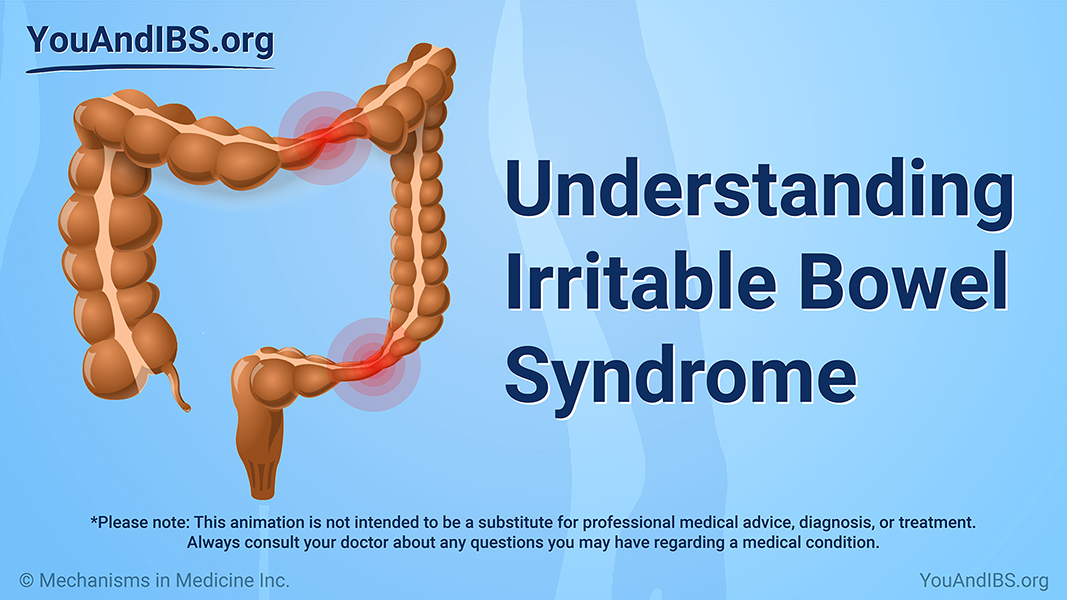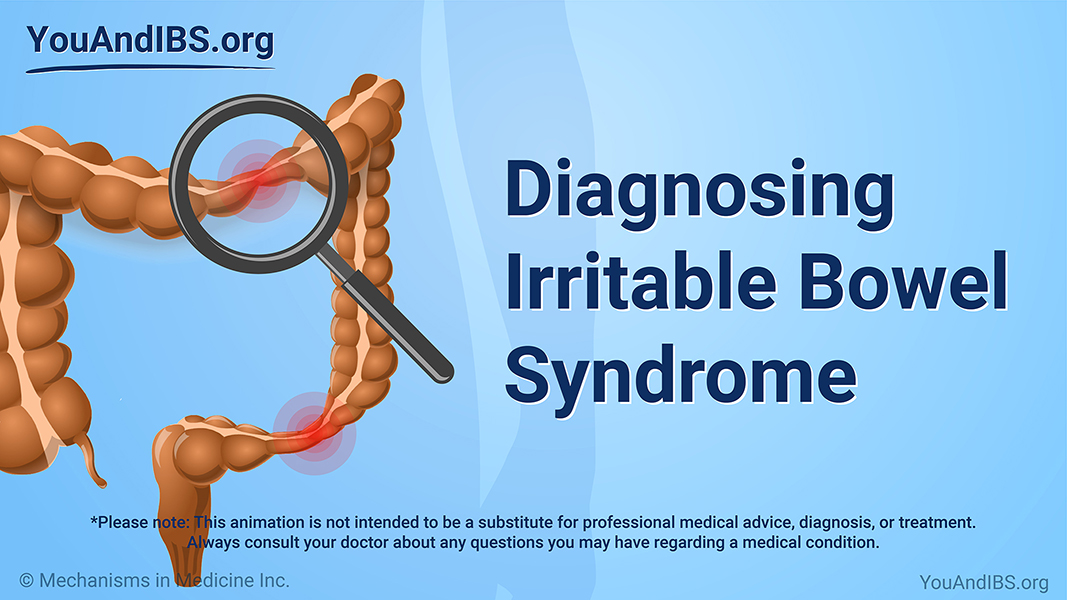Managing and Treating Irritable Bowel Syndrome
*Please note: This slide show is not intended to be a substitute for professional medical advice, diagnosis, or treatment. Always consult your doctor about any questions you may have regarding a medical condition.
Can IBS be cured?
Irritable bowel syndrome, or IBS, is usually a long-term condition. For some people, symptoms may last many years or a lifetime.1 However, IBS may go away on its own or become less active.
IBS treatment can significantly improve symptoms and quality of life.2
How is IBS managed? Can I lead a normal life?
IBS is managed with a combination of diet, medications, and other treatments.
Each person's IBS is different, so your treatment should be personalized to you and your symptoms.
What role does diet play in managing IBS?
What you eat and drink can be an important part of managing IBS. However, no single nutrition plan works for everyone.3
What role does diet play in managing IBS?
Talk with your healthcare provider about foods that seem to trigger IBS attacks. You can also keep a diary for 2 or 3 weeks to track symptoms.
Ask your healthcare provider before trying any specific nutrition plan, especially if it promises to cure IBS.
A nutrition plan for IBS
A nutrition plan may include trying a low-FODMAP diet to reduce how much of certain carbohydrates you eat.
Nine out of 10 people with IBS avoid foods or drinks to reduce symptoms. However, this can lead to missing important nutrients. A plan guided by a registered dietitian is a safer option.3
*FODMAP: Fermentable Oligosaccharides, Disaccharides, Monosaccharides And Polyols
Eating with IBS
When you have IBS, simply eating may sometimes trigger an attack, regardless of the specific food.4
Eating 5 or 6 small meals rather than 3 big meals a day, taking your time, and eating in a relaxed environment may help.
Stomach issues with IBS
Bloating is a common symptom of IBS. Eating several small meals, trying a low-FODMAP plan, and avoiding gas-causing foods may help.5
Feeling full quickly may be part of IBS, but talk to your healthcare provider. It could also be a sign of other conditions.6
Trying IBS treatments
Work with your healthcare provider to develop the best treatment plan, and speak with them before trying fiber or supplements such as peppermint oil. Surgery is not usually done to treat IBS.
Prescription medications for IBS
There are several prescription-only medications approved for IBS. In addition, several medications are commonly used off-label. This means they were developed for other conditions but have been found to help with IBS.
Investigational treatments for IBS
Right now, more than 20 new treatments are being studied for IBS.8 Ask your healthcare provider to help you stay updated on treatment options as they become available.
Improving your quality of life
Keeping a symptom diary can help you pinpoint your worst symptoms and IBS triggers and talk to your healthcare provider about them. You can get a complimentary diary template on the International Foundation for Gastrointestinal Disorders website.
Living with IBS is stressful, but reducing stress and treating an underlying mood disorder may help reduce IBS symptoms. Cognitive behavioral therapy and hypnotherapy have been shown to help.
Finding more information on IBS
To learn more about IBS, use reliable sources like the International Foundation for Gastrointestinal Disorders' IBS patient website.
References
- International Foundation for Gastrointestinal Disorders. What is IBS? Available at https://aboutibs.org/what-is-ibs. Accessed March 21, 2023.
- International Foundation for Gastrointestinal Disorders. Treatment. Available at https://aboutibs.org/treatment. Accessed March 21, 2023.
- International Foundation for Gastrointestinal Disorders. IBS diet. Available at https://aboutibs.org/treatment/ibs-diet. Accessed March 21, 2023.
- Algera J, Colomier E, Simrén M. The dietary management of patients with irritable bowel syndrome: A narrative review of the existing and emerging evidence. Nutrients. 2019 Sep 9;11(9):2162. doi: 10.3390/nu11092162. PMID: 31505870; PMCID: PMC6770052.
- International Foundation for Gastrointestinal Disorders. IBS diet: What to do and what to avoid. Available at https://aboutibs.org/treatment/ibs-diet/ibs-diet-what-to-do-and-what-to-avoid. Accessed March 21, 2023.
- International Foundation for Gastrointestinal Disorders. Nausea and IBS. Available at https://aboutibs.org/signs-and-symptoms/recognizing-symptoms/nausea-and-ibs. Accessed March 21, 2023.
- Brandt LJ, Chey WD, Foxx-Orenstein AE, et al, for the American College of Gastroenterology Task Force on Irritable Bowel Syndrome. An evidence-based position statement on the management of irritable bowel syndrome. Am J Gastroenterol. 2009 Jan. 104 suppl 1:S1-35.
- Globe Newswire. Irritable bowel syndrome pipeline booms as 24+ new therapies likely to enter in the treatment domain. Available at https://www.globenewswire.com/news-release/2023/01/18/2591243/0/en/Irritable-Bowel-Syndrome-Pipeline-Booms-as-24-Therapies-Likely-to-Enter-in-the-Treatment-Domain-DelveInsight.html. Accessed March 22, 2023.
This slide show provides an overview of what you can do to
manage and
treat irritable bowel syndrome (
IBS). IBS is managed with a combination of
diet,
medications, and
other treatments. You can learn about the importance of working with a registered dietician to develop a
personalized nutrition plan to reduce IBS attacks. A nutrition plan may include trying a low-FODMAP diet. You can also learn about IBS
treatments such as fiber, supplements, peppermint oil, prescription-only
medications, and investigational treatments being studied in clinical trials.
Cognitive behavioral therapy and
hypnotherapy have been shown to help. Each person's IBS is different, so your treatment should be personalized to you and your symptoms.
-
Share with family and friends:
Click here to take our SURVEY
Your feedback is important to us! We will use your feedback to develop future areas of content about IBS which will help other patients, caregivers and families.
